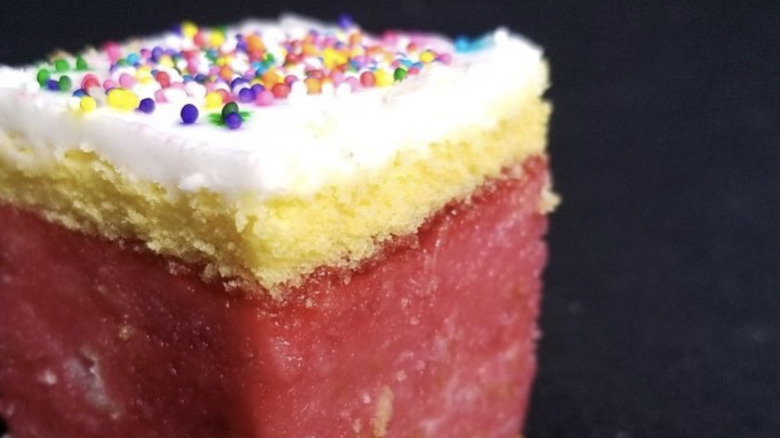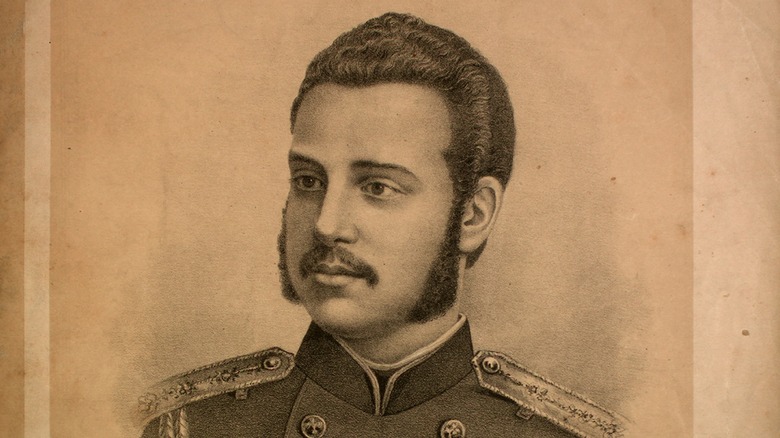Louisiana Russian Cake Reuses Leftovers In A Deliciously Boozy Way
The Southern United States and Eastern Europe aren't typically mentioned in the same breath, except when it comes to Louisiana Russian cake, a centuries-old dessert. The supremely sweet treat (sometimes referred to as Creole trifle, Russian cake, or Russian slice) gets its luxurious taste from generous pours of rum, which also help to keep it from becoming dry. You'd never guess that it's one of the most frugal cakes in the book, thanks to its base of leftover cake pieces bound together by jelly and syrup and pressed into a mold.
The historical hypotheses surrounding the origins of Louisiana Russian cake are as jumbled as the bits and bobs that comprise the dessert itself. But in recent years, a theory put forward by the late food historian Michael Mizell-Nelson seems to have muted a popular tall tale. Here's how the cake (most likely) came to be — and where to seek it out.
Russia's Grand Duke Alexis probably had nothing to do with it
Local legend once had it that Louisiana Russian cake was invented by a New Orleans baker in 1872. Russia's Grand Duke Alexis was due to visit for Mardi Gras, and the baker wanted to make something special. Alas, that theory was debunked by Russian historian Lee Farrow, who found no evidence that the Grand Duke ate any such confection on his tour of the United States that year.
Mizell-Nelson, like Farrow, was never entirely sure of the truth, but he preferred less inventive theories. One maintains that the cake was born from the raspberry trifle, while another points to the punschtorte, an Austrian-German cake made of biscuit scraps soaked in rum. A third theory suggests that Louisiana Russian cake was inspired by Charlotte à la Russe, or "Russian-style charlotte," which is made of shredded ladyfingers mixed with macaroons and wine. Whichever way you slice it, the earliest version of Louisiana Russian cake likely came to be in the 18th or 19th century.
And a bottle of rum
These days, it's not as easy as you'd think to find Louisiana Russian cake at your average Southern bakery — even one in Louisiana itself. Michael Mizell-Nelson, who referred to it as "the bread pudding of cakes," even went so far as to call it an "endangered delicacy." To seek it out, you might have to pay a visit to Haydel's Bakery in New Orleans, which bills it as an "old-fashioned favorite." Haydel's still cites the debunked theory about Grand Duke Alexis, but what the bakery lacks in historical accuracy, it makes up for in cake-making expertise.
The bakery's version features an amalgam of "gold cake," devil's food cake, and almond cake scraps mixed with raspberry jelly, rum, and a "hint" of anise. It gets topped with homemade buttercream icing and dusted with sprinkles, yielding a "very rich and moist" treat that is decidedly boozier than your average day-old pastry.


